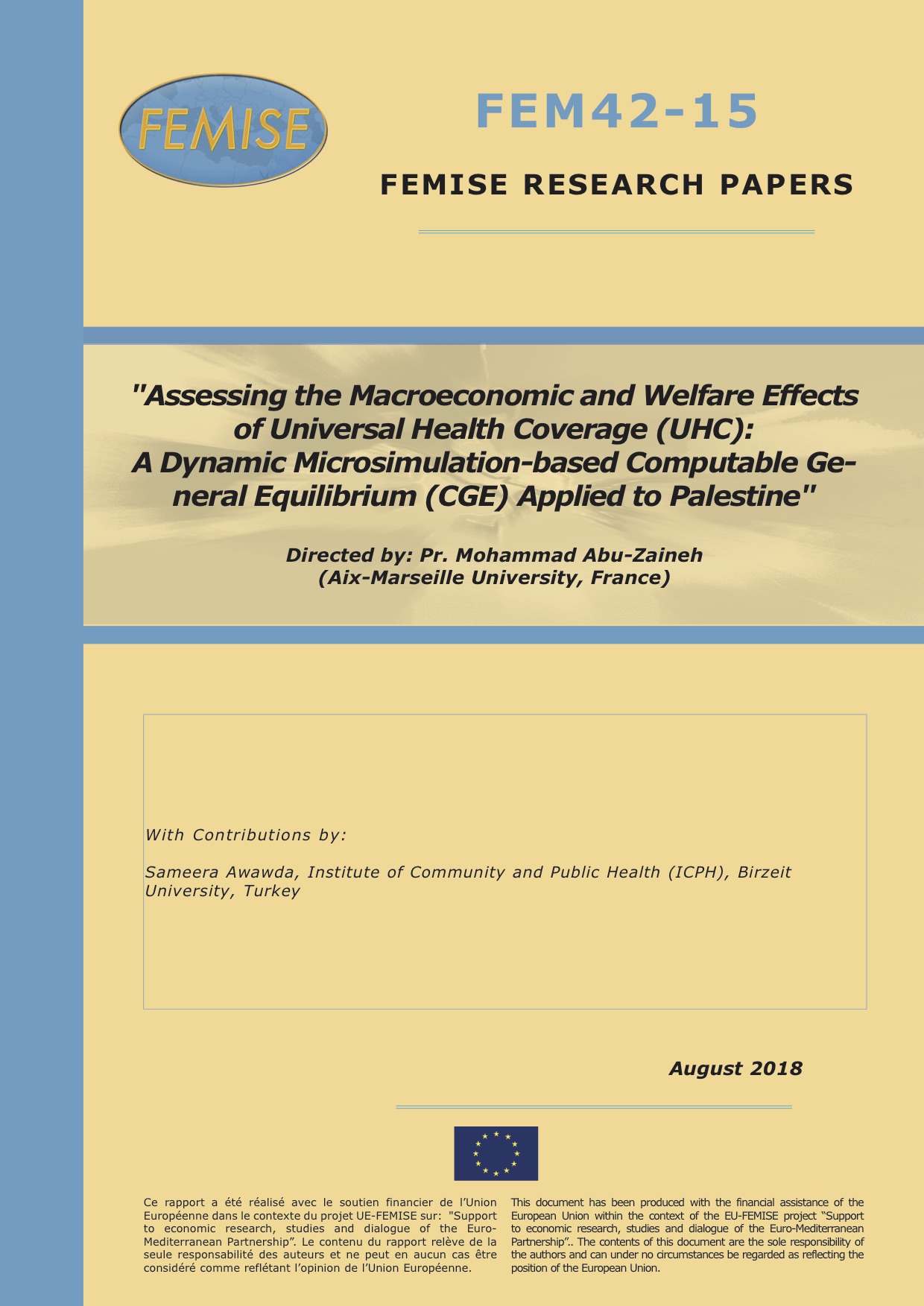
Mohammad Abu-Zaineh, Bruno Ventelou, Khaled Makhloufi
The FEMISE Policy Brief series MED BRIEF aspires to provide Forward Thinking for the EuroMediterranean region. The briefs contain succinct, policy-oriented analysis of relevant EuroMed issues, presenting the views of FEMISE researchers and collaborators to policy-makers.
The latest MED Brief on ” Is informality an irrevocable obstacle to Universal Health Coverage (UHC)? Evidence from Tunisia” is available here.
Summary : In many developing countries and in particular in the context of Middle East and North Africa (MENA) region, large fractions of the population are deprived of access to any social security system, mainly because they are working in the informal sector. This paper shows that even among the most precarious workers, the willingness-to-pay for a health insurance system is substantial but varies according to the three different healthcare insurance plans proposed in the survey (giving access to public provider, to private providers, or reimbursement), associated or not with a pension scheme. This suggests that informality, by and in itself, is not an incurable impediment behind the achievement of the UHC goal in Tunisia as long as appropriate insurance plans are offered to the uncovered populations.
The list of FEMISE MED BRIEFS is available here.
 The policy brief has been produced with the financial assistance of the European Union within the context of the FEMISE program. The contents of this document are the sole responsibility of the authors and can under no circumstances be regarded as reflecting the position of the European Union.
The policy brief has been produced with the financial assistance of the European Union within the context of the FEMISE program. The contents of this document are the sole responsibility of the authors and can under no circumstances be regarded as reflecting the position of the European Union.


 The implementation of “Universal Health Coverage” (UHC) poses serious challenges. Some of these stem from the macro-fiscal space considerations while others relate to the micro-behavioral sphere.
The implementation of “Universal Health Coverage” (UHC) poses serious challenges. Some of these stem from the macro-fiscal space considerations while others relate to the micro-behavioral sphere.